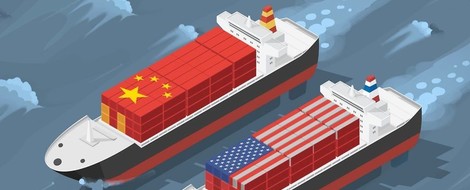Your podcast discovery platform
Curious minds select the most fascinating podcasts from around the world. Discover hand-piqd audio recommendations on your favorite topics.

piqer for: Global finds Globalization and politics
Nuala Lam is a bilingual freelance journalist with a focus on civil society, justice, and identity in China. She speaks, reads and writes Mandarin Chinese and forms her analysis of contemporary China through both English and Chinese language media. She has worked for NGOs and news media in Beijing and Shanghai and has also spent extended periods in the Chinese countryside, seeing the country's diversity and uneven development first-hand.
Her postgraduate research at the London School of Economics focussed on English-language coverage of China, investigating the translation of journalistic ethics between differing political contexts. She also holds a first class degree in Chinese and History from the School of Oriental and African Studies, University of London.
How The US-China Trade War Galvanised Support For Protectionism Among Chinese Netizens
With no clear "winner" emerging from the China-US trade war it is worth asking if the episode has an alternative legacy, beyond the two nations' trade policies.
Blogger on Chinese public opinion and managing director of China Dialogue in Beijing, Ma Tianjie, believes that the trading of threats between Beijing and Washington caused a u-turn in Chinese public opinion:
If Donald Trump’s trade war has any effects, one of them would be uniting the Chinese internet under the flag of industrial self-armament.
Netizen responses to the trade war homed in on the two countries' tariff lists: the US's targeted industrial robotics and IT, whereas China responded predominantly with levies on agricultural imports. The US's proposed tariffs were labelled by one widely followed grass-roots nationalist as the US’s desperate effort to
“keep China in the bondage of low-end industries to be eternally exploited by the US hegemony, technologically and financially.”
The key to exactly why the choice to target these particular industries caused a dramatic shift in Chinese public opinion — which had previously favoured freer trade in order to stimulate state owned enterprises — lies in the history of the nation's interactions with outsiders.
Since the first Opium War in 1840, National Humiliation has been something of a public condition in China, a deep well of emotion that can be drawn upon to rally public support for national policy.
State TV shows The Pillars of a Great Power and Amazing China reproduced the political tradition of linking industrial achievement with casting off the yoke of national humiliation.
Thus, Trump's threat of tariffs against industries where China might conceivably compete with the US in the future was the perfect provocation to a society primed by state propaganda.
After a Trump administration visit to China in May, Ma concludes that
The hawks left Beijing, leaving behind a nation more alerted and vigilant than ever about staying its course toward regained glory.
